2019 is coming to a close, it's been a pretty wild year for Linux gaming that's for sure! Here's some thoughts on the year and what to expect for 2020.
Firstly, let's look over all the games that came to Linux in 2019. As usual, very little AAA support but that doesn't mean we don't get awesome experiences. We've had a huge amount of quality games, which is the important thing. Not including those currently in Early Access, here's a few random picks we've had released this year for Linux: Abandon Ship, AI War 2, Shadow of the Tomb Raider Definitive Edition, DiRT 4, Total War: THREE KINGDOMS, Sky Racket, Rise to Ruins, Indivisible, Stygian: Reign of the Old Ones, Jenny LeClue - Detectivu, Police Stories, Overland, Devader, Dicey Dungeons, Oxygen Not Included, Streets of Rogue, Mosaic, The Eternal Castle: Remastered, Mindustry, Slay the Spire and so on.
Listing "good" games released across a year is always highly subjective of course, your list will be vastly different to my own and there's plenty I will have completely forgotten about. Tons that arrived in Early Access too throughout 2019 that are worthy of mentioning like Jupiter Hell, Monster Sanctuary, Wildermyth and Volcanoids.
Watching how stores evolved over this year has been interesting. Epic Games have been throwing out free games constantly, pulling in plenty of exclusives but they still have no plans to support Linux. Epic did throw us a little bone by giving Lutris some funding, that was great for them, but a drop in the ocean for Epic overall.
The other side is Valve with Steam, still continuing to put resources into making Linux gaming better. Not just with Steam Play Proton, but the recent Steam Runtime Container system which should eventually help reduce QA time/cost for developers who do want to support Linux. The ACO shader compiler (original announcement) for AMD GPUs is another big Valve project to make gaming on Linux smoother again.
The elephant in the room is of course the Linux gaming market share, at least when looking at the available percentages that Steam offers in their monthly hardware survey. We're still small, we are a niche market and we're going to remain that way likely for some time. Silver lining there though, somewhat, is that the Linux market share is mostly stable. How can we push it further? Marketing. We need more marketing and better marketing. That, plus Linux being available on more machines at top vendors. Those two things really are needed to help push it.
Sadly, this year we saw a few games drop Linux support entirely with Rust, Natural Selection 2, Forager and Throne of Lies. Not many, but even one dropping support is not good.
However, don't get too down about the above point. There's a huge amount of moving pieces, certainly when it comes to the future of Linux gaming. Right now, if you truly don't care about any details and just want to play games on Linux—you've never had it better. We have Steam Play, enabling Proton (and other tools like Boxtron) to run games through Steam not designed for Linux like Halo: The Master Chief Collection, No Man's Sky, Elite Dangerous, Deep Rock Galactic and plenty more. Wine also came along tremendously and when paired with DXVK/D9VK, even more games can be played easily on Linux like Overwatch.
I don't personally think Steam Play Proton/Wine should ever replace proper support, to make that clear. The last thing we need is more lock-in because developers end up seeing less of a point in using cross-platform tech and open APIs. For now though, while we're a niche, Steam Play Proton and Wine fill a big gap and they're definitely important for that. The most important part of Steam Play Proton, is people not losing access to their older Windows-only library when moving to Linux. Eventually when more people try out Linux and enjoy the experience and the market share rises as a result, then we can look to get proper support from more developers. Until then, be sure you keep supporting those who do put out Linux versions of their games.
We also have the rise of streaming platforms like Google Stadia further taking away barriers to playing bigger titles on Linux. There's also whatever Steam Cloud Gaming turns out to be, that's going to be very exciting to find out more on. Hopefully Valve won't keep us waiting too long on it. Streaming platforms still have a long way to go though, and they have their own barriers of entry (especially internet speeds and bandwidth).
Various other fun things were released this year too! Shadow of Mordor got a Vulkan Beta from Feral Interactive which gives some fantastic performance on Linux. A ton of great open source software came along nicely this year too like Lutris for managing games, vkBasalt for some fun extra post-processing, Godot Engine for game development, OBS Studio for recording and livestreaming, pyLinuxWheel and Oversteer for managing Logitech Wheels and so many more awesome projects had tons of improvements this year.
It's going to continue to be exciting to watch things grow and change over 2020. Thanks to many indie developers supporting Linux, the Unity Editor at some point will properly support Linux and when Unity has IL2CPP support on Linux with Unity 2019.3 it will be easier for developers again, Steam Play Proton and Wine will continue to mature, distributions and desktops will keep getting better and so on. There's always something improving somewhere.
We will be here to follow it all! What are your wishes for 2020? Do let us know in the comments.
This was also the busiest year on record for traffic and content here on GamingOnLinux!
2018 was already a big jump over 2017 but in 2019 we pushed things even further to bring you even more news! We're closing in on 2,300 articles posted this year. See some other stats on this page.
If you wish to support what we do, you can find out the various ways to do so on this dedicated page any time like Patreon, Paypal, Liberapay, Flattr, Twitch, Brave BAT, and Ko-fi. We also have partnerships with GOG and Humble Store/Bundles, if you use our affiliate links when you buy games we earn some pennies.
This year, we're having a little holiday livestream on December 24th so be sure to come join in if you're stuck, alone or you just want to have some Linux fun with us: Twitch Channel.
A super-massive thank you for all the support this year, here's to an awesome 2020!
Personal note: I will be completely away on December 24th, December 25th and again on December 31st/January 1st for some rest and relaxation to prepare for another year.
Linux has a learning curve along with some constraints to what software you can use and how you can use it. Windows FAR less so, its not about being perfect, its about doing most of what you want. Linux sadly doesn't for most people. Yet anyway.
Depends on what we think that most people do on their PC. If it's surf the web, watch movies and porn and stuff, Linux is great. The things people always talk about are:
a) Office suites. That one I always didn't really understand, I always thought you use those mostly at work, I personally have very little use of them at home. But regardless, it's great on Linux. BUT it's still a push and pull, because M$ does its best to keep their product relevant.
b) Artist stuff from Photoshop all the way to 3D. Perhaps a bit paradoxically, Linux does better in 3D than it does in 2D, as I believe Blender is overall way better built software than most stuff you can get to do your 2D. And this was, is and always will be a big issue, because Adobe are d*cks.
And then of course gaming. Honestly, nowadays I really think it's just a matter of time. The hot AAA games that everyone including your 6 year old son should play come and go. Maybe the next big thing will run on Linux well.
With Proton opening up so many options I actually bought too many games this year. Next year I will be more disciplined with my purchases. Or I might have a moratorium for a bit as I finish some of the many excellent games I picked up this year.
Do the plunge today!"?
Thing is, those of us who want to choose Linux have already done so. That's why our share is so rock stable. Of course, new users are added each day but the core audience for Linux remains the same.
It's a huge, huuuge endeavor to create "the year of the Linux desktop". Ironically - and this pains to say - but someone like Microsoft is needed on board. And well, judging from the development from their side over the last few years, I don't rule out thaw exactly that's what will happen. Not today, not tomorrow, but further down the street.
And if so happens, that's gonna be one hell of a bitter pill to swollow for many of us, that's too damn sure. 😂
Last edited by Beamboom on 16 Dec 2019 at 2:11 pm UTC
There's no reason to call for marketing when there's nothing to market. What should the message be? "You can now play a few of your windows games with just a little more hassle and just a little less performance than your windows pc. Except competitive online games, due to anti cheat.I think you've got stuck in a bit of a box there. When talking about marketing, I'm talking about Linux as a whole. The market share for Linux is much bigger outside of gaming and could be bigger still, if all the stuff that's already mentioned happened. As it is, Linux is already a very stable and fantastic OS to use for general purpose. That's the point.
Do the plunge today!"?
Thing is, those of us who want to choose Linux have already done so. That's why our share is so rock stable. Of course, new users are added each day but the core audience for Linux remains the same.
It's a huge, huuuge endeavor to create "the year of the Linux desktop". Ironically - and this pains to say - but someone like Microsoft is needed on board. And well, judging from the development from their side over the last few years, I don't rule out thaw exactly that's what will happen. Not today, not tomorrow, but further down the street.
And if so happens, that's gonna be one hell of a bitter pill to swollow for many of us, that's too damn sure. 😂
When talking about marketing, I'm talking about Linux as a whole. The market share for Linux is much bigger outside of gaming and could be bigger still, if all the stuff that's already mentioned happened. As it is, Linux is already a very stable and fantastic OS to use for general purpose. That's the point.
Yeah well alright, then I slightly misunderstood you. But actually my point still stands: The imaginative "message" I described in my post could be rewritten to,
"You can now open most of your Office documents but not always exactly how they were meant to look, and without the full integration with email and calendar you used to enjoy. But you'll get used to it. We don't really have your favourite design tools either but we do have some alternatives that cover 80% of the ground, you just need to learn a completely new tool to do the same. And we probably can offer you the clients to connect to your work network from home - although that's no guarantee.
Do the plunge today!"
The problem with Linux is not the OS - it's been stable and user friendly for years now - it's the applications. Only the applications. But damn how important that is - regardless if we talk about games, developer IDEs, office solutions or other desktop tools.
Even if we were on par with Windows - and we're far from it - why should they go through the hassle of getting familiar with a new OS?
You have to be willing to sacrifice something in order to take that plunge. And those who are today - at least the core crowd - should be well aware of Linux already.
I mean, I don't want to be the Debbie Downer here, but there really truly are no easy simple path to "the year of the Linux desktop". I still think we need someone like Microsoft to do something drastic. And... I got a feeling that may just happen. So I've not given up! :)
Last edited by Beamboom on 16 Dec 2019 at 9:41 pm UTC
(OK, before I go any further here I'd like to note that all the problems TheRiddick and Beamboom point out are mostly real and the ones that involve Linux itself should certainly be fixed, as should many others they didn't have space to mention. But that doesn't make them right in their assessment. It just means there are some people you can't effectively market Linux to. In theory TheRiddick apparently should be one of those people, except apparently he does use Linux, so I'm not sure what that means)
Like, the market for desktop and/or laptop and/or tablet computers is basically almost everyone. But if you're trying to break in, you don't break in to "almost everyone", you divvy it up into different kinds of people, different kinds of use cases. So first of all, people whose main attribute is being hard core gamers is not who you market Linux to. But that is a minority of the market. TheRiddick's "people who know what VRR is" are a tiny minority of the market (I'm not one of them--or maybe I know and I just don't remember).
Look at Chromebooks. ChromeOS is fucking crippled. My wife has a Chromebook. The dang thing is incredibly limited; all the arguments people have been making about Linux not being marketable go triple for ChromeOS. It has basically no software, it basically can't play games at all, and it's weirder to get used to than any of the more user-friendly Linux distros. Google Docs is not serious and if you're used to saving your documents on your computer or your thumb drive it's bloody annoying because it really doesn't want to let you put your stuff anywhere except on Google's cloud. And yet Google has successfully marketed Chromebooks to a solid little niche, to whom they are fit for purpose.
I'm convinced that there are substantial market segments for whom Linux, depending on distro, is the best OS. Right now, as is. And I'm not talking about techies. So for instance,
--People who want to do relatively basic computing, but not as bare-bones as ChromeOS. A bit of this, a bit of that, light gaming, not doing corporate work at home so they're not that worried about the details of document exchange. So like, relatively typical users.
--People who don't want to muck around with finding and installing software, who'd like their computer to come ready to do most of what they need, out of the box, might appreciate a computer with Linux and all the open source software preloaded.
--People who are vaguely paranoid about the things computer users might want to be paranoid about, but don't want to get a friggin' degree to figure out what to do about it. You could easily do a distro that is, within reason, pretty unlikely to phone home but still pretty user friendly, ideally with a little GUI app that gave you a checklist of things to enable or disable both in the OS and browsers, with paragraph explanations--maybe tooltip or something--you could optionally display for each item.
--People who like having it their way. Techies aren't the only people who like customization. Burger King practically built their franchise on the notion of "What if I want my burger without a pickle?" even though I'm not sure they actually offered any more freedom to customize than anyone else.
--Old people who've been using computers for a long time. User friendly Linuxes are easy to use, and at this point can be made to run a lot of older Windows software better than Windows 10 will run it. Older people often end up with a lot of little programs they still want to use that aren't supported any more. So like my dad uses an old genealogy program that won't work on the latest Windows, and it annoys the hell out of him; he's hanging on to Windows 7 like grim death. Set up a distro so it could easily inhale a person's legacy stuff and run it without too much fiddling with Wine, and felt pretty old-Windows-ish and would be fairly long-maintenance, and you'd have a great OS for older moderate computer users.
Those segments add up to a lot more than 2%. And a lot of the kinds of problems TheRiddick talks about would solve themselves pretty fast if the percentage went up a bit.
We're still small, we are a niche market and we're going to remain that way likely for some time.
What, if anything, do you think will move the needle in this regard?
I can see SteamPlay 2.0 causing an increase in our marketshare on Steam's hardware survey, but only if the number of AAA "Whitelist" games is increased dramatically, updated regularly, and marketed widely. It seems like so many PC gamers are completely unaware of how easy it is to have a near-complete experience on Linux these days. So far it doesn't look like Valve is ready to do those things, and is content to work in the background to improve the underlying technology, so I think we'll stay where we are for the near future.
Thanks for another good year of content Liam, and best wishes to all for the festive season.
@bradgy, this. I was on youtube and commented on a gameranx video about things people who build their own pc hate, and dude mentioned having to pay for a windows license so obviously I commented about just using linux and actually having control over your computer without being spied on. Someone commented: yeah but how would you game? Pretty much every game is just for Windows. Had literally never even heard of Proton, even though they're surely an active Steam user. That's the thing. Without an actual marketing campaign, which linux by its very nature will almost assuredly NEVER have, we absolutely HAVE to get the word out, and it seems like because our community is kind of insular and bubble-esque, it's like we don't realize quite how little people truly know on Linux. I guarantee you that 90 percent of Windows users don't have ANY idea you can run any windows software on Linux, let alone AAA games at near-native to sometimes even native performance. It'd help if the big non-linux tech channels did more linux stuff too. LTT doesn't do hardly any, but they still do more than most. Even though Anthony was literally at the System76 superfan event, and Luke has used linux for years, and last year tweeted that he'd kicked Windows for Linux Mint on his main computer, then further elaborated that he runs 4 different distros and had for years. If people like that can get more actual linux content out there, we will see a huge increase of users. We DEFINITELY need more articles/awareness-pushing out there that linux is absolutely a viable alternative to Windows 10 for all the Windows 7 users waiting for 7's EOL. If we even got 10 percent of those Win 7 users, we would see a complete change overnight. But honestly, regarding gaming, it will take EAC/BattlEye and the like working on Linux, along with Wine and Proton becoming actually mature and feature-complete and able to run any game on Linux. HOPEFULLY we are actually moving toward a future when you can play your games on whatever platform you choose. There seem to be even a ton of windows users that support that idea and think it's garbage when devs pull support from wine or ban people like Bungie did with Destiny 2.
I hate marketing. But, that's the world we live in, and I do like strategy. So OK, in marketing terms the question is not "how to market Linux", it's "Who do you market Linux to?"
(OK, before I go any further here I'd like to note that all the problems TheRiddick and Beamboom point out are mostly real and the ones that involve Linux itself should certainly be fixed, as should many others they didn't have space to mention. But that doesn't make them right in their assessment. It just means there are some people you can't effectively market Linux to.
Your suggested strategy holds a lot of truth in it, and yes defining the targets and breaking down the target audience and tailor the campaign would surely be how to go about.
But. It's not that easy.
To all you who form the optimistic side of this discussion, I strongly urge you to look around you, and see how this market is.
Look at Apple.
They have 6-7% of the desktop computer market. Big fucking APPLE! One of the richest companies in THE WORLD!! Apple, who spends who knows how many billions on advertising across the entire world has only 6-7%! That's all they've achieved after DECADES fighting for the desktop of the computer users. DECADES, and they are only a few times times bigger than the Linux desktop!
Apple, who has no server solutions, no other PC products to work on other than to market their desktop OS to the end users. Full focus on one thing, and a campaign that started in THE EIGHTIES!
That's the reality.
You can't compare this with a ipad or pad or mobile or any other niche, special purpose device. You need to look at this particular market and see how that works.
And it works like this: People who are not advanced users go for what they are exposed to at work and amongst friends. They use what their friends use, and see zero reason to do anything else. And as they get more and more familiar with their OS, the more and more it takes for them to change to a new OS and be a "noob" again.
Simple as that.
And the advanced users, well for them the tools count. They can't sit there and fiddle around with something lesser than what they know, and especially not if their workflow is embedded in those applications. They want to get the job done.
That leaves the rest of us - those of us who use Linux both at work and home (I'm one of those), we are what we are because of who we are - and we are and will always be a minority.
I'm not saying that this will never change. It can. But it's definitely more than just marketing that's keeping us from that change. In fact that rather comes last, after the core pieces are in place.
Last edited by Beamboom on 17 Dec 2019 at 11:54 am UTC
Last edited by Mohandevir on 17 Dec 2019 at 2:09 pm UTC
[Look at Apple.
They have 6-7% of the desktop computer market. Big fucking APPLE! One of the richest companies in THE WORLD!! Apple, who spends who knows how many billions on advertising across the entire world has only 6-7%! That's all they've achieved after DECADES fighting for the desktop of the computer users. DECADES, and they are only a few times times bigger than the Linux desktop!
Since their mobile craze, they aren't fighting for the desktop though. They simply don't care about it. macOS is utter trash in so many ways, especially for gaming. And I'd say despite the fact that it's so bad, they have higher than Linux market share. Because of marketing.
Last edited by Shmerl on 17 Dec 2019 at 7:16 pm UTC
Your suggested strategy holds a lot of truth in it, and yes defining the targets and breaking down the target audience and tailor the campaign would surely be how to go about.I don't recall saying I was optimistic. I just don't think the main barriers are at this point intrinsic to the Linux OS or even the Linux open source software ecosystem. If anything, I feel that we've reached a point where pointing to the remaining annoyance points is mainly a way of not facing the real problems, which at this point are mainly external and have to do with the way our economy works, and are much more intractable than problems with the OS, with Wine and so on, which can be fixed by clever energetic coders.
But. It's not that easy.
To all you who form the optimistic side of this discussion
For instance, just because sufficient marketing combined with product placement of preloaded Linux computers could push Linux adoption does not mean that is likely to happen. Desktop Linux has to be not just useful for people but a profit driver for some corporation before anyone will do such a thing.
Last edited by Purple Library Guy on 17 Dec 2019 at 8:32 pm UTC
For instance, just because sufficient marketing combined with product placement of preloaded Linux computers could push Linux adoption does not mean that is likely to happen. Desktop Linux has to be not just useful for people but a profit driver for some corporation before anyone will do such a thing.
It can be profitable, but problem is displacing the existing monopoly behemoth (MS). The main barriers are network effects of decades of Windows monopoly. I think anti-trust can fix the situation, for example strict requirement for any PC manufacturer to offer OS choice and make it simply illegal to sell computers with Windows option only. Until that happens, there is no point to even expect things to change on significant scale.
Current anti-trust is very lax in this regard, MS got off the hook and run amok for years with this garbage.
Last edited by Shmerl on 17 Dec 2019 at 8:40 pm UTC
Try getting a game from GOG for Linux and install it without command line, can't.
What are you talking about? I install and play regularly GOG games without using the terminal.
And sorry, but yes for me Galaxy being not available is itself not an issue for me, and yet, I'm a gamer.
Look at Apple.
They have 6-7% of the desktop computer market. Big fucking APPLE! One of the richest companies in THE WORLD!! Apple, who spends who knows how many billions on advertising across the entire world has only 6-7%! That's all they've achieved after DECADES fighting for the desktop of the computer users. DECADES, and they are only a few times times bigger than the Linux desktop!
Apple, who has no server solutions, no other PC products to work on other than to market their desktop OS to the end users. Full focus on one thing, and a campaign that started in THE EIGHTIES!
You forgot something, most of Apple users bought an Apple machine. From my point of view, a lot people get confused about Hardware and Software, a lot of them don't understand the differences as they buy Apple products as thinking it's better than Microsoft products.
But we (Linux users, techies...) know that software is not tied to hardware and Microsoft doesn't make a lot of money at selling machines like Apple does.
And you can't really compare macOS and Windows, it's like the plague and the cholera. They basically have the same issues, proprietary software, privacy issues, lucrative companies.
I mean macOS is not really better than Windows, and for the gaming it's really worse.
It's mostly brainwashing to people who don't/can't understand how important it is.
How many people I see with Apple stuff and thinking that : they're cool, Apple is incredible and simple and beautiful and whose people are mostly ignorant about how computers works? A lot.
But you have to keep in mind that all Apple machines are by far more expensive than others so it's a solid argument why so many people can't afford one.
And it works like this: People who are not advanced users go for what they are exposed to at work and amongst friends. They use what their friends use, and see zero reason to do anything else. And as they get more and more familiar with their OS, the more and more it takes for them to change to a new OS and be a "noob" again.
Simple as that.
Yeah I don't disagree with that though, but... again most of them are noobs on the OS they "know", because most of them don't know how to fix it themselves IMO.
Here are the things I think should happen, and I find it realistic expectations, for helping Linux:
- DXVK and WINE becoming more robust
- VKD3D rising up
- EAC or/and other Anti cheat working. Alternatively Valve's own anti cheat trust matchmaking, which they said they would upgrade (still no news on that)
- Vulkan adoption increasing (Stadia)
- Valve (and gamers) marketing Linux. But first Proton needs to be complete. A complete Proton will run games even with EAC or/and BattleEye and at least DXVK will be as performing as solid as possible. Ideally VKD3D having reached a milestone too (but still WIP)
EDIT: We will also need Feral and other reputable companies in our space to continue to provide native ports too. Goes without saying their work is also important.
Last edited by Linuxwarper on 18 Dec 2019 at 9:51 pm UTC
I never thought that the lack of games was the culprit. It has always been that Windows comes preinstalled. Seriously, why should anyone swap a more or less working OS he or she is used to for an OS which is unfamiliar, requires work (after all you have to install it), and might not run all the games and applications you are accustomed to? Arguments like privacy ("I got nothing to hide... besides they are all the same", security ("I got a good antivirus"), easy updates ("I prefer my downloads from webpages the way I do since 1998") are moot for most people.
Think of it the other way around: Linux comes preinstalled, but if you buy Windows for some bucks (from a shady source), you can play way more games, especially the big ones. Don't you think people would...?
Of course they would. Even when pre-installed it would be a gradual process. After all we are facing decades of pre-installed MS operating systems.
I never thought that the lack of games was the culprit. It has always been that Windows comes preinstalled. Seriously, why should anyone swap a more or less working OS he or she is used to for an OS which is unfamiliar, requires work (after all you have to install it), and might not run all the games and applications you are accustomed to? Arguments like privacy ("I got nothing to hide... besides they are all the same", security ("I got a good antivirus"), easy updates ("I prefer my downloads from webpages the way I do since 1998") are moot for most people.
Think of it the other way around: Linux comes preinstalled, but if you buy Windows for some bucks (from a shady source), you can play way more games, especially the big ones. Don't you think people would...?
Of course they would. Even when pre-installed it would be a gradual process. After all we are facing decades of pre-installed MS operating systems.
I don't know... In this day and age, it seems it's all about branding. Mainstream consumers seem to require to be able to identify to turnkey brands... Microsoft, Apple, Sony, Samsung, Google... Linux is some blurry concept for the mainstream consumer. In fact, it's not a selling argument. Valve is in a position where it might be able to create it's hardware brand, be it console and/or desktop, but it doesn't feel like that's the goal they are focusing on atm. Atari could be one such brand, if done correctly, but looking at the project's evolution... So weird things happening... And considering the target audience...
I'm affraid the day Linux gains a foothold on the desktop is the day Microsft will release a Linux based "Modern OS" or when Valve will be forced to create it's hardware platform because Microsoft decides to lock everybody out to force all users on Xbox Series X + Xbox Play Anywhere. Will it ever happen? I believe in it less and less by the day. I'll be the happiest guy to be proven wrong.
It's just sad to think about Linux' untapped desktop potential because of Microsoft's iron grip on the market.
Last edited by Mohandevir on 18 Dec 2019 at 3:46 pm UTC
Since their mobile craze, they aren't fighting for the desktop though. They simply don't care about it.
That's taking it much too far - but yes, the mobile segment is where they pull in the big money and has done so the last ten years or so.
But their desktop segment, especially when we look at laptops, is really massive and they are definitely still pushing forth, much harder than I'd say Microsoft do for their OS.
And I'd say despite the fact that it's so bad, they have higher than Linux market share. Because of marketing.
No gamers use OsX. Simply put. So the Steam share are of those who own a Mac who's also playing a game now and then. I believe their share of the desktop market in total is roughly twice the Steam percent, or thereabout.
(interestingly enough, the Linux desktop market share is also roughly twice the Steam share.)
And yes, Linux is definitely a better gaming OS than Os X. Even Apple fans admit that. But Apples percentage on Steam is not because they've marketed their computers towards the gaming segment. And let's be frank here - they do a LOT right in regards to UX. It's why they have the position they have.
Still - it's not that big a position! Even after all these decades!
And this is a fact that I just want to stress. It does say something about what it takes to gain a good position on this market. Apple is no small fish, never were.
Last edited by Beamboom on 19 Dec 2019 at 11:31 am UTC
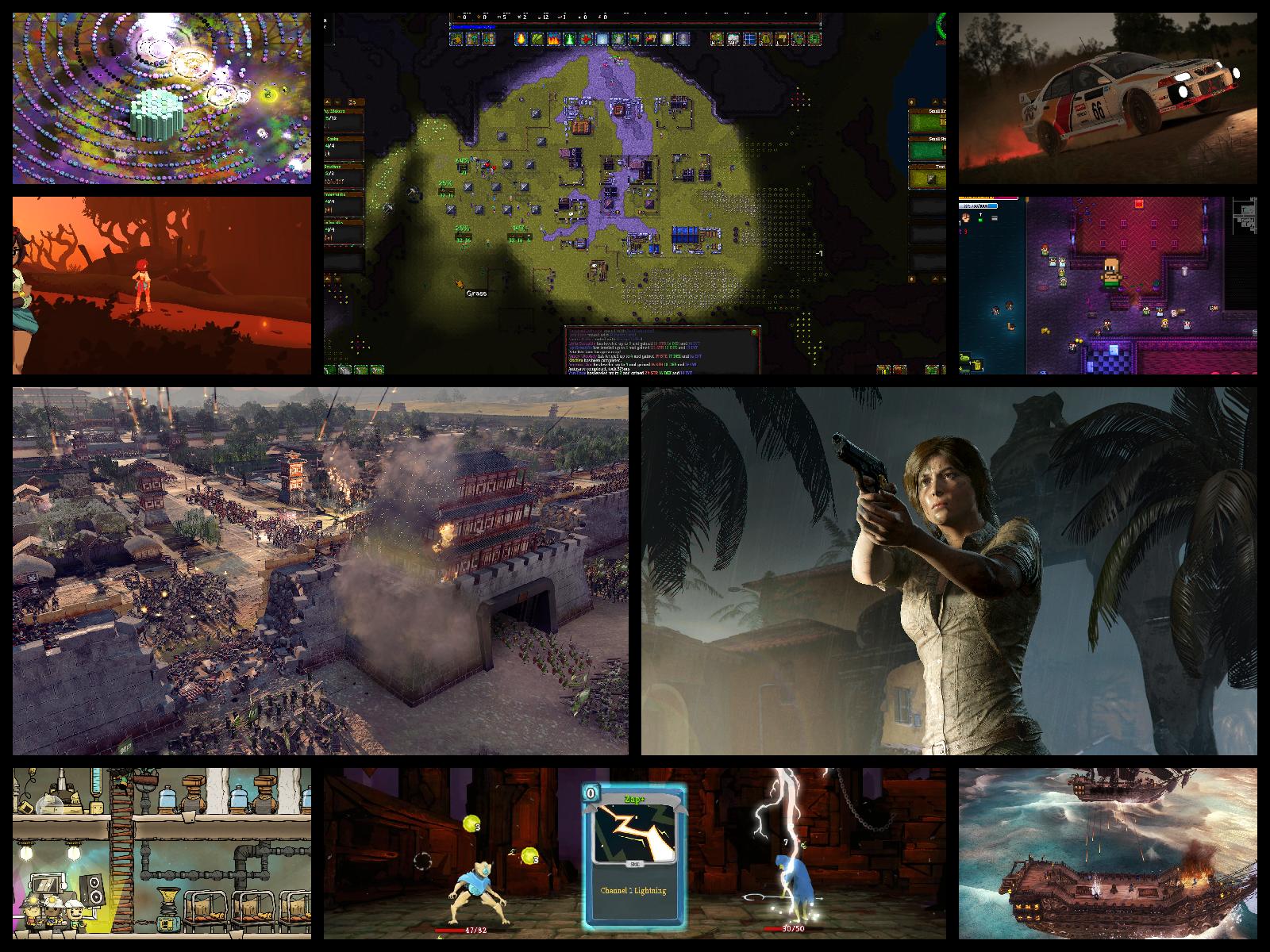
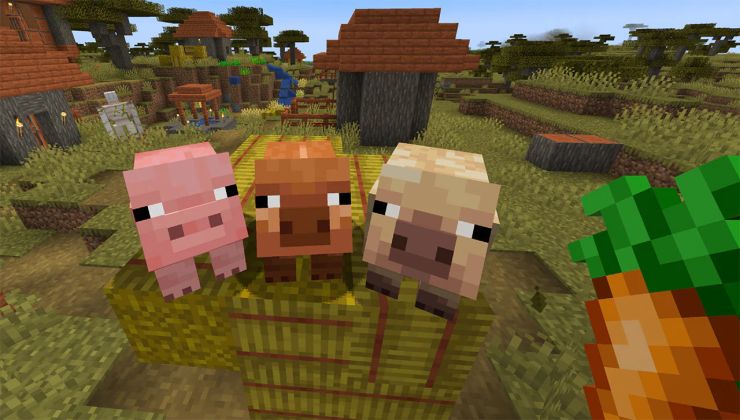
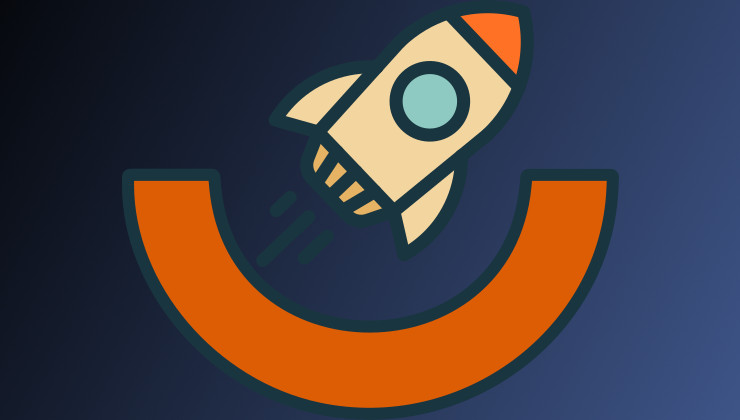
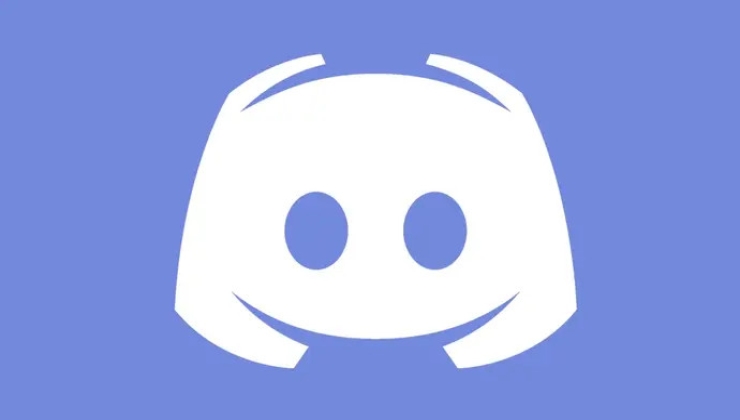
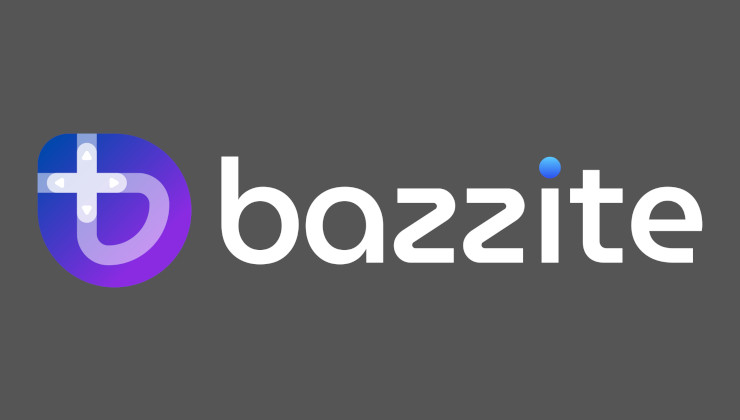








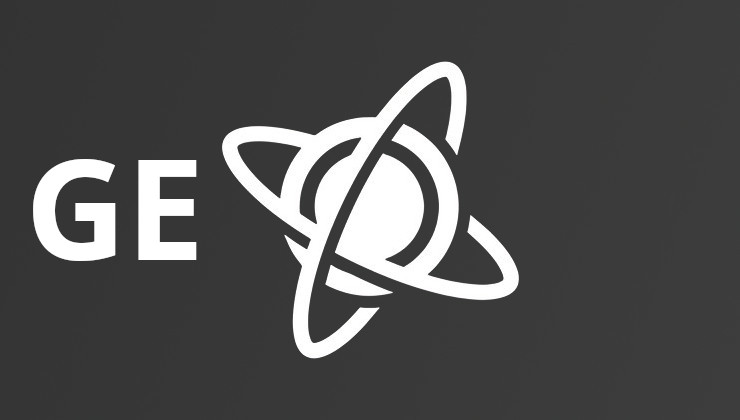 How to install GE-Proton on Steam Deck, SteamOS, Linux
How to install GE-Proton on Steam Deck, SteamOS, Linux An idiots guide to setting up Minecraft on Steam Deck / SteamOS with controller support
An idiots guide to setting up Minecraft on Steam Deck / SteamOS with controller support
See more from me